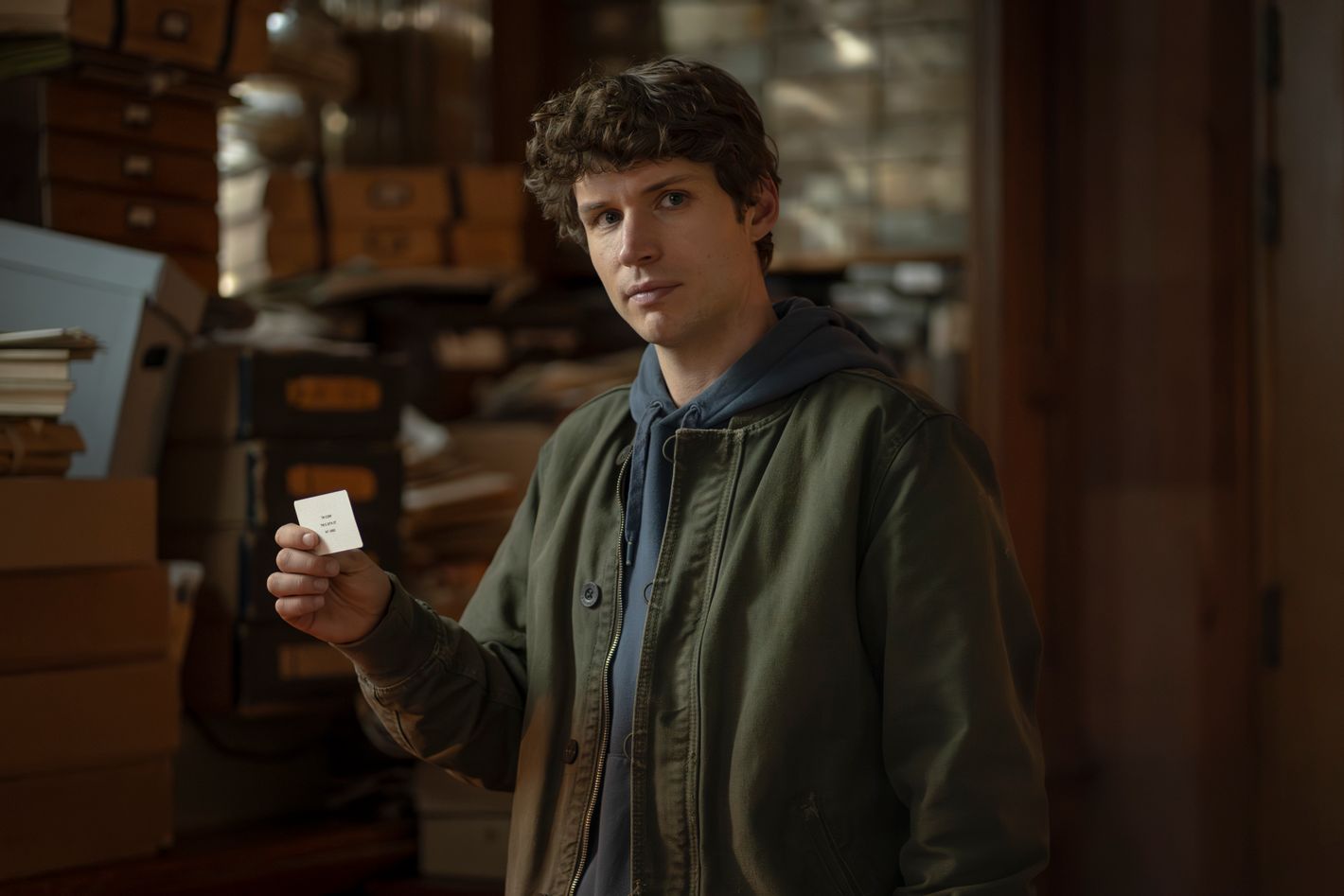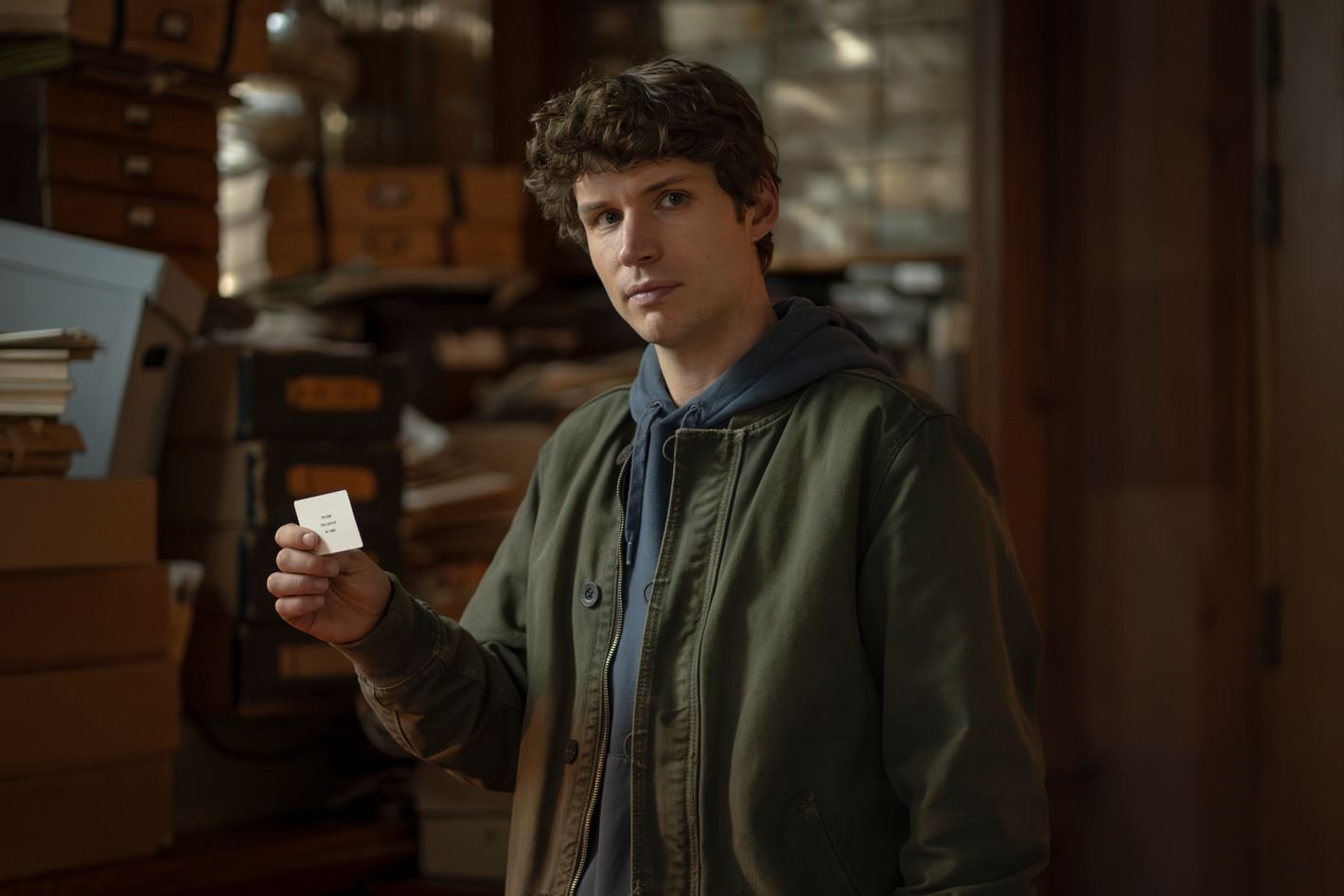
After watching the show’s two-episode premiere, I’m left with one big question that I’m stunned I don’t know the answer to: What is Talamasca: The Secret Order’s hook even supposed to be?
I’m not asking this with a sense of preemptive judgment in my heart. I’m a huge Interview With the Vampire (the show) fan, and one who really likes what the show’s writers have done by going beyond their source material. Futzing around with Anne Rice’s canon (as Talamasca certainly is, considering it’s AMC’s first Immortal Universe that isn’t adapting a series of Rice novels wholesale) has worked pretty well on basic cable before, and I believe it easily could again. I want Talamasca to succeed!
I’m also not trying to be glib. I’ve seen the marketing for this show. It is supposed to be a spy thriller set in the Interview With the Vampire/Mayfair Witches universe that balances occasional pop-ins from those shows’ characters with building out its own complex mythology. It has a series of specific tones it’s trying to go for, and most of the time it at least hits something adjacent to them.
But I’m not sure any of that is the same as a hook, exactly. It tells me what genre(s) the show is meant to be set in, but it doesn’t tell me why I’m meant to care about the characters on my screen. To be overly analytic about it, so far, I think the show has three hooks it’s attempting to catch its viewers on: (1) the intrigue of a Secret Family History, (2) the goofy delight of Campy Flouncing, and (3) the easily GIF-able Fan-service Feast. At the moment, they’re all either underdeveloped, working at cross-purposes with the others, or both.
Let’s start with the first one of those attempted hooks: our protagonist, Guy Anatole, and his search for the truth behind his early childhood. After a cold open — a chase scene in London in which a cool girl hacker in the most cropped jacket I’ve ever seen in my life downloads a file and then flees across an industrial zone, only to throw herself in front of a train when a vampire-looking guy uses a clicker to set a pair of gurgly monsters on her — we find ourselves in a cold corporate office, where we get our first look at Guy, whom I can only describer as “like if Evan Hansen made a wish to be a real boy.” (This is less the fault of Nicholas Denton, Guy’s actor, and more the fault of his unfortunate haircut. Many things, however, are the fault of Nicholas Denton. We’ll get to that.)
Guy is interviewing at a fancy law firm; thanks in part to the interviewers’ classist digs, he’s blowing it. But after a moment in which he hears the industrial whine of TV clairvoyance, he steps back into the room and tears his possible future boss a new one for his bigotry, explaining his birth parents’ addictions/deaths and the hardscrabble circumstances of his childhood in a moment that feels a bit like a Tumblr Fake Story. Later, in the bathroom, a man I can only refer to as “the young Republican” (he has the look for it!) tells Guy that his gutsiness has gotten him his dream job. He explains his own thought process during the interview in a way that I simply had to transcribe verbatim: “I was screaming in my head for you to stand up for yourself, and then you did. It’s like you … heard me or something. Strange.” This is not a subtle show.
Guy walks out making the exact face Connor O’Malley makes at this time code in the “Honk If You’re Horny” sketch from I Think You Should Leave, only to immediately run into Helen, a fashionable blue-suited Talamasca agent we briefly glimpsed in the show’s opening scenes. Speaking in the exceptionally vague way particular to supernatural operatives in genre television, Helen tries to poach Guy to her own monster-watching organization (code named “TM Corp” on business cards, which I think is fun!), offering to pay Guy $5,000 to meet with her to discuss her offer. Guy agrees, seeing as he’s three months behind on his rent. At Helen’s secret library/church/apartment, she explains, once again in very vague terms, that the Talamasca is an organization that has “mother houses” in many global capitals, they observe the world around them, they operate on a nonprofit basis (I would love to see its Form 990!), and, y’know, that their area of interest is “the world of the supernatural.” Guy, who, yes, can hear other people’s thoughts, tries to listen in to Helen’s and finds a barrier of silence. He’s still skeptical, but he takes the money and heads back home …
… Only to find that the envelope he’s received also contains an old Christmas list he wrote as a kid. (One of the items he says he wants on the list is “a friend,” which I know is supposed to be wrenching but which I, unfortunately, laughed at, like, a lot.) Unnerved, he half-heartedly searches for the Talamasca on Google, then looks up flights from New York to Florida so he can grill his adoptive mom about the Christmas list. She explains, after a moment of hesitation, that the Talamasca arranged for Guy to be fostered with her, and that since then it has done “everything” for him, including paying for his years in law school. Back in New York, Helen confirms his mother’s story and tries once again to get him to join up with the Talamasca, as, per her, they have a “special need” in London at the moment. When Guy is, once again, unconvinced, Helen takes him to the Upper West Side to meet an old friend of hers who might be able to help convince him.
A brief final word here on the Secret Family History plot: Everything I have laid out could, conceivably, be an interesting hook! While Guy’s motivations, backstory, and character are all rather underwritten at the moment, a particularly skilled actor could absolutely sell us on the angst, rootlessness, and yearning for a stable identity the script seems to imply.
Unfortunately, Nicholas Denton is not that actor. I’m not sure if it’s the material or the direction or what, but he’s flat, uncharismatic, bland, and thoroughly unengaging. Part of that, for what it’s worth, might be that Denton, an Australian, cannot do an American accent to save his life, which results in line reads that are either unintentionally funny or completely swallowed up. But, well, let it be noted that unorthodox accentwork has never compromised quality on Immortal Universe shows before — see, for instance, Sam Reid’s linguistically fascinating performance as Lestat on Interview. Whatever the cause, Denton plays Guy as a mid-tier Vampire Diaries protagonist, never evincing a range beyond just sort of screwing his face up a bit when he’s supposed to be upset. As a result, it’s just about impossible to feel emotionally invested in Guy Anatole at this point in the show.
With about ten minutes left in the episode, though, we’re coming up on our next hook: Campy Flouncing. Helen takes Guy up to the top floor of the Dakota, where her friend Burton lives. Burton is, thank God, an exceptionally queer-coded (and explicitly queer, based on how he describes Guy!) vampire played by an immensely fun Jason Schwartzman. He spends his five minutes onscreen in plum pants and a paisley suit jacket, absolutely dominating the camera as he sits in chairs weird and checks his French manicured vamp-nails against the lamp. He explains to Guy that vampires are very real, blocks him from his usual mind-reading, taunts him by levitating him above Central Park West, and darkly informs him that “they’re lying to you.” Guy is able to break through Burton’s thought barricade, but it’s no use; he’s absolutely terrified and runs outside the apartment as soon as Burton unfreezes time. And thus concludes our all-too-brief journey into Campy Flouncing, a modality of the show that was very played up in marketing materials. It’s entirely at odds with the dour tone Guy’s plot has taken so far, to the degree that it feels airlifted in from another show entirely. Which is a shame, since these few scenes are by far the best in the premiere.
Guy argues with Helen outside the building, then heads back home to sleep on his futon, where he has a very vivid dream of Burton repeating scary lines from their conversation while having a very fun-looking whirl in a spinning office chair. But when Guy wakes up, it turns out the chair … was his chair! Spooky. Burton’s left him a copy of — what else? — Interview With the Vampire, the diegetically real book Interview character Daniel Molloy wrote at the end of that show’s second season. Underlined in red on a list of one of the vamps’ victims is a name: Anne Leamas, Guy’s birth mother.
And thus we get our final hook: a tiny, tiny Fan-service Feast, at least for Interview fans. Guy goes to Daniel’s book signing, asks him pointedly about the page Anne’s name appears on, and gets an invitation to meet him out back in a few minutes. Daniel, angry for no reason I can easily discern, explains to Guy that the Talamasca wrote the page of the book Anne’s name appears on (???). He air-drops Guy a photo of Guy’s birth mom (who’s supposed to be dead) in modern athleisure on a London street, says a few more cryptic things, implies the Talamasca don’t have Guy’s best interests at heart, mentions a shadowy organization called the 752, and then disappears. These few minutes tell us nothing about either Guy or Daniel, and yet they’re the only moments from this premiere I’ve seen GIF’d, which is a bit damning when you think about it. Guy goes home, stares at the photo of his mom, and then, the next morning, shares a pensive look with Helen on a rainy sidewalk, a look that, like so many things in this episode, is shaped like something that’s supposed to carry emotion but feels suspiciously empty if you think about it for a bit too long.
Observations of the Order
• Hi! My name is Lily, and I’m excited to be your recapper for Talamasca. My last TV recapping gig before this one was going slowly insane about Star Trek: Strange New Worlds’s deeply disappointing third season, so please forgive me my current knee-jerk cynicism about genre television.
• I am going to be honest, I have lived in New York before, and I have so many thoughts about Guy’s living/financial situation! Like, I get that he probably doesn’t want roommates because of his voice-hearing curse or whatever, but despite the general disrepair in his building, he doesn’t live in a small apartment, and it seems like his building is in lower Manhattan! I’m not convinced that $5,000 is going to cover three months of back rent.
• Also, his pull-out sofa situation is stressing me out. You can get a normal mattress for like $200 these days.
• There is a Claudia cosplayer in Daniel’s audience at the book signing, which seems in very poor taste.
• One final note about New York: Sometimes Denton goes sort of New Yawk-y to try and pull off an American accent, which is often particularly funny. His pronunciation of passport as (my best approximation) “piss-pahwtt” is staggering.

